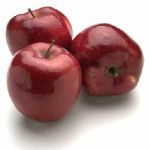
The saying “You are what you eat” doesn’t just apply to those fried chips that go straight to your thighs. The right foods can give you “brain power” and contribute to your performance throughout the day.
Does all the information about food chemicals have you thinking? Well yes, there is a whole range of factors to consider in planning a healthy weekly menu. Then there are the food chemicals that are actually good for your thinking.
Shopping lists shouldn’t have to look like science experiments. Here’s a short summary of some of the key ingredients in foods that can assist your mental well being:
Low GI (glycaemic index) foods help make glucose, used for energy, available over a sustained period. Glucose cannot be stored in the brain, for example, which needs a continuous supply from the bloodstream.
If you don’t have enough glucose, you might find it difficult to concentrate, feel tired and possibly even light-headed. Low GI foods include wholegrain breads and cereals, pasta, some long grain rice and many fruits and vegetables.
Omega-3 fats are essential fats that cannot be made by the body and must be supplied by the diet. Studies have shown that the omega-3 fatty acids found in fish oils can play a part in maintaining good brain function. Certain types of Oemga-3 fats are also made from plant extracts.
Iron is needed to carry oxygen around the body and for building red blood cells. The brain has a big demand for oxygen so iron deficiency can produce symptoms of tiredness, irritability, and diminished mental alertness. Meat, poultry, fish and dark green leafy vegetables are good sources of iron.
Choline contributes to acetylcholine that many of our brain nerves and muscles use to send messages. Foods containing choline may help promote clear thinking and enhance memory. Choline rich foods include eggs, milk, liver and soy.
Amino acids are broken down from protein. These are the building blocks from which neurotransmitters are made. Neurotransmitters carry signals from one brain cell to another. Lean meats, including native meats like kangaroo, eggs, milks, nuts and soy are good sources of amino acid rich protein.
Antioxidants contained in fruit and vegetables help neutralize free radicals which can damage cells including brain cells. Vitamin C, beta-caroten and vitamin E are among the anti-oxidants found in fruit and vegetables.
Comments are closed.